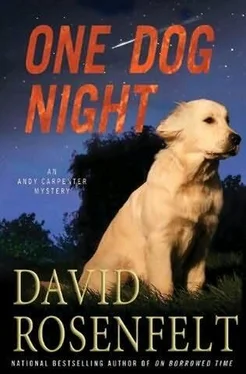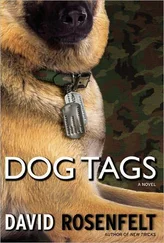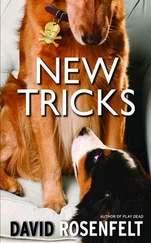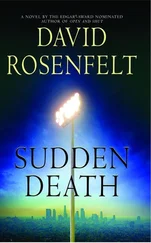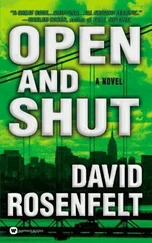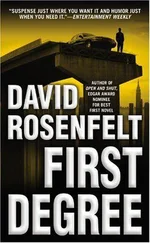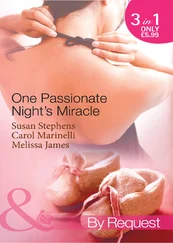Also, not too many people have made a dying wish to me. Holland did so, asking that I protect his son and keep him with his mother. It would be nice if I could grant it.
After about ten minutes, two FBI agents show up, and there are quick, huddled conversations. Both sides obviously want and are claiming jurisdiction. There is as much chance of the local cops prevailing as there is if the mayor of Dover duked it out with the President of the United States.
The agents question me for three hours, and I limit what I tell them. Basically, I just say that I was investigating a lead in the Galloway case, and that Holland’s name came up. When I approached him, he led me to the park and killed himself.
All of that is true, but I describe the conversation I had with the judge as minimal. I just don’t see the upside to bringing Benji into all of this now, or maybe ever. He and his mother are about to have enough to deal with.
During the questioning one of the agents gets a call. He steps away to take it, but when he comes back he says, “Special Agent Mulcahy will have some questions for you when you get back to New York.”
“Great. That will give me something to look forward to.”
I finally leave at just after three in the morning. I have satellite radio, so I spend the first half of the three-hour drive listening to news about Judge Holland’s suicide, without commercial interruption.
But there is another interruption, a news bulletin that reports that Alex Bauer was killed in an intense fire that consumed his Mercedes sedan, with him in the driver’s seat. The car was virtually incinerated, burning out of control in a secluded rest stop near Camden.
They didn’t waste any time.
I didn’t know Bauer very well, but the news is still jarring. People are dying all around us, and I’m unable to figure out how to stop it. If I don’t do so soon, Noah Galloway will be the next victim. His sentence won’t be death, but a lifetime in prison for an innocent man might be even worse.
As I approach my house, I see that it is filled with media people and trucks, so I drive around the block and sneak in through my neighbor’s backyard into mine. Laurie is up and waiting for me; we’ve talked on the phone, but she still has many more questions.
Most annoying is that I can’t take Tara and Bailey for our morning walk; the media crush is just too great. So instead, they, Laurie, and I hang out in the backyard until it’s time to go to court.
I’m a little tired… it’s been a long day.
Entech filed a barrage of paperwork with the federal government.
For the most part they were notifications that work was to begin developing previously undeveloped land just purchased as part of the Milgram takeover.
Very little of it was actually going to happen, and the multiple filings represented a cover-up so that no one could focus on the one piece of land that was in fact important.
Area TX43765 in Texas.
Once the filings were complete, the men who had prepared the mine under that land could move back in. Slowly, since there was no sense at this point creating any stir or attracting unnecessary attention.
In any event, no one would question them. Senator Ryan’s amendment had made it possible to mine land without having to serve notice of intent to, or receive approval from, the government. It was allegedly designed to facilitate the development of energy resources, but that was not Ryan’s motive at all. He put in the amendment because Fowler forced him to.
It would take no more than a week to put the material in canisters, and then load them on to a truck. The actual amount and weight of the materials was not daunting, but the nature of them made careful handling a must, especially because of the extraordinary depth of the mine.
Once they were ready, they would wait for the final word to come down, and for the truck to arrive. Then they would load the truck and collect their money.
It would be more money than any of them had ever seen.
Judge De Luca calls Dylan and me into chambers before the start of court.
When he sees me, he says, “Is there more than one of you?” He’s referring to the fact that he watched coverage of me in Delaware just a few hours ago.
“At this point one feels like more than enough.”
The banter part of our conversation is over, and De Luca gets down to business. I notice that this time there is no court reporter present, which means that De Luca the fair-minded judge is going to become De Luca the take-no-prisoners dictator.
“Here’s how this is going to go, gentlemen,” he says, and then turns to me. “I assume you are going to move for a judgment of acquittal?”
It’s standard for defense attorneys to move for a judgment of acquittal, which in effect asks the judge to acquit without even turning it over to the jury. It almost never works, and certainly won’t here. “Absolutely, Your Honor.”
He nods. “Okay, I’ll deny it.”
Judgments of acquittal can be renewed within fourteen days of denial, but that’s not something that fills me with hope either.
He continues. “Then I assume you’ll want to reopen testimony so they can hear about your little Delaware adventure last night?”
“Yes, definitely,” I say.
“I’ll deny that as well. The jury has heard your theory. If they believe it connects to this case, that’s fine. If they don’t, one more incident won’t change things.”
“I strongly object, Your Honor,” I say. “There is more than just Judge Holland’s suicide. Alex Bauer was on the call list as well.”
“That was quite a list,” De Luca says. “The objection is nevertheless overruled. Once these motions are dispensed with, I will give my charge to the jury, and then we’re out of here. Nice and quick. There’s a lot of interest out there in the media, gentlemen, especially after what happened last night. I will not have my trial turned into a media circus.”
I make another attempt, but there is no arguing with De Luca on this. I had very much hoped to get the Judge Holland suicide entered into evidence, and possibly even Bauer. Not only would it have been significant in and of itself, but the unusual step of restarting the trial would have likely had a great effect on the jury.
But that’s not happening, and all we have left is the possibility of using the ruling as the basis of an appeal should Noah be convicted. That’s not exactly a major consolation.
Hike and I meet with Noah for ten minutes before court is convened. As a prisoner in solitary confinement, he’s one of the few people in America that hasn’t heard about Judge Holland. I explain to him what it means in the context of the trial, which isn’t much.
“How long do you think the jury will be out?” he asks.
“I have no idea.”
“And the verdict?”
I’m not about to lie to him now. “I think we’re going to lose,” I say.
He nods. “Me too. I think you’ve done an amazing job, and Becky and I will be grateful to you for as long as we live. But if I were on the jury I would vote to convict.”
“I think we’re going to win,” Hike says.
Hike, who at any given time expects the world to come to an end within an hour, thinks we’re going to win.
“There you go,” I say to Noah. “The incurable optimist has spoken.”
Noah laughs; he has gotten to know Hike quite well. “Why do you say that?” he asks.
Hike shrugs. “I’ve just got faith in human nature.”
I’ve got to get out of here before he breaks out in a rendition of “Put on a Happy Face.”
Once I leave I turn on my cell phone. There’s a message from Laurie asking that I call her, which I do.
“I got the travel records from Gail Lockman for her husband.”
Читать дальше
